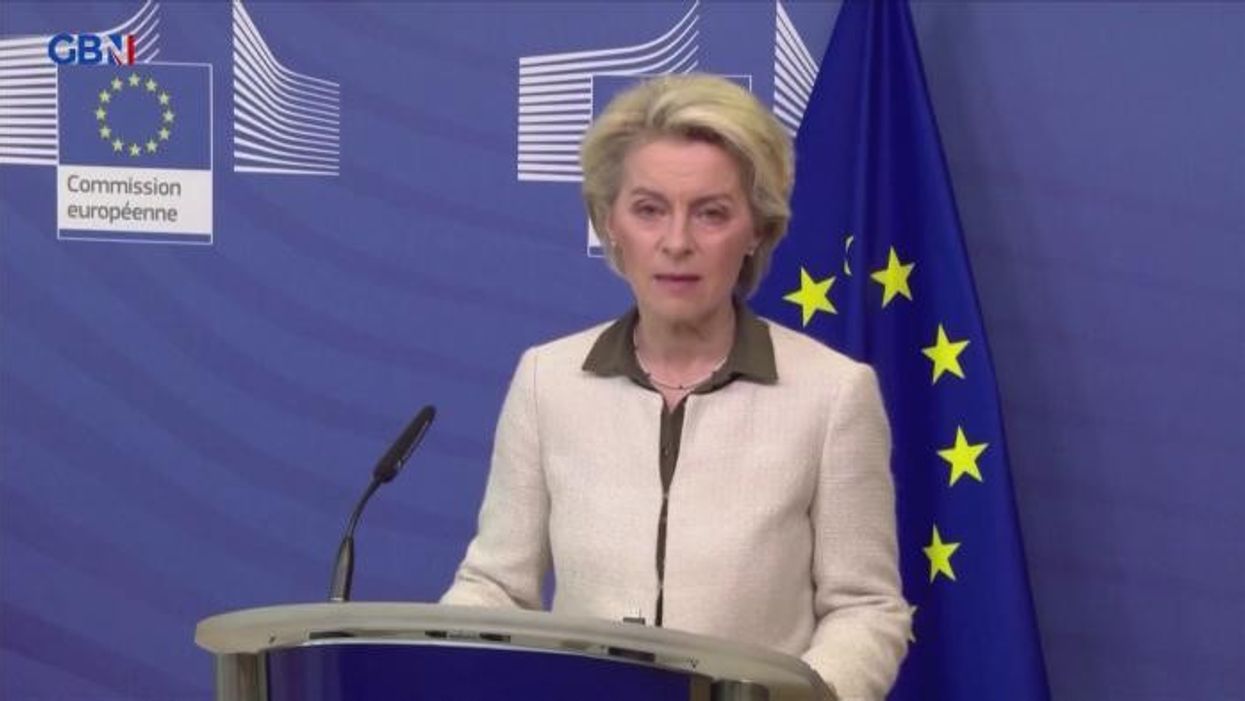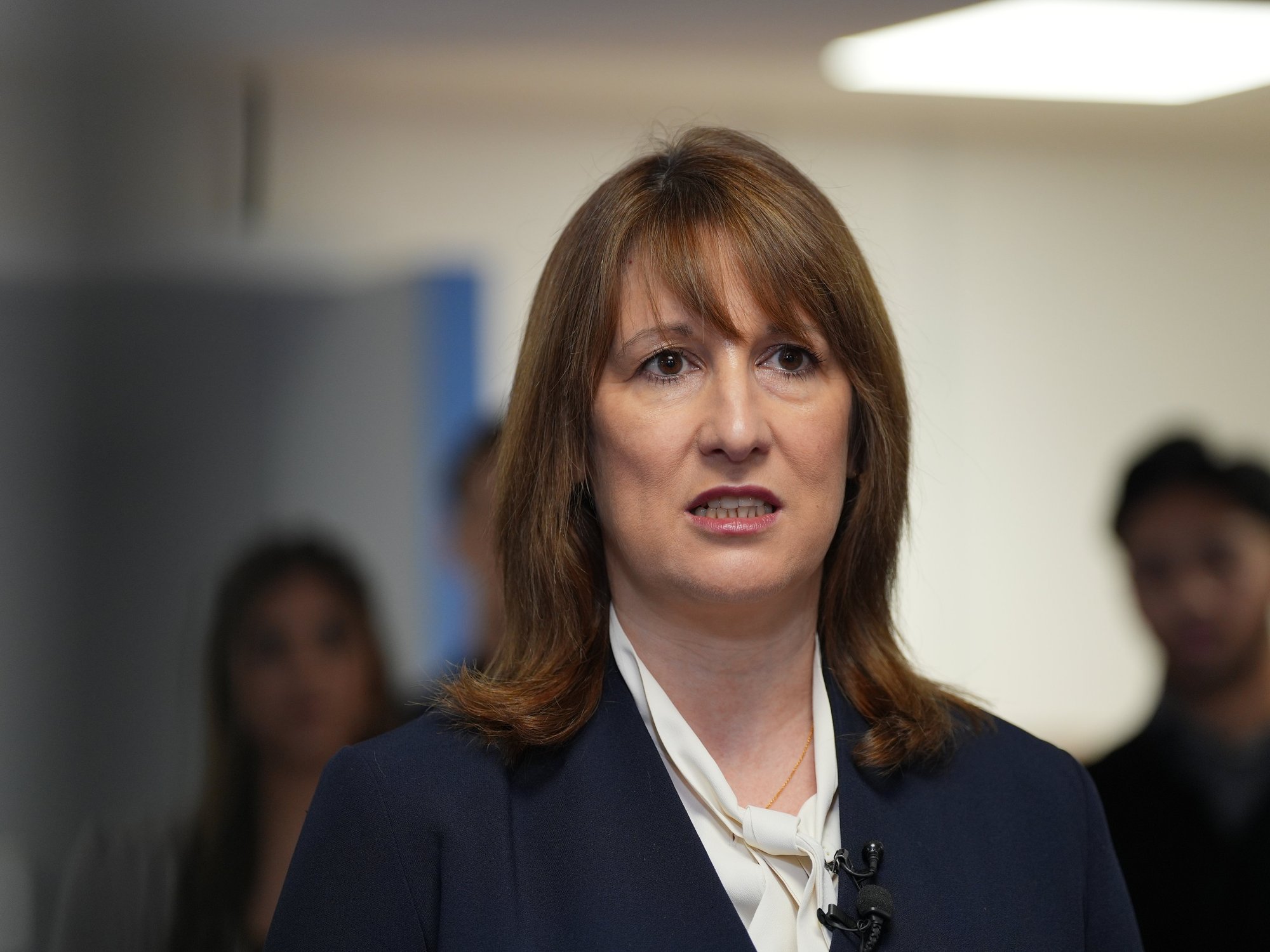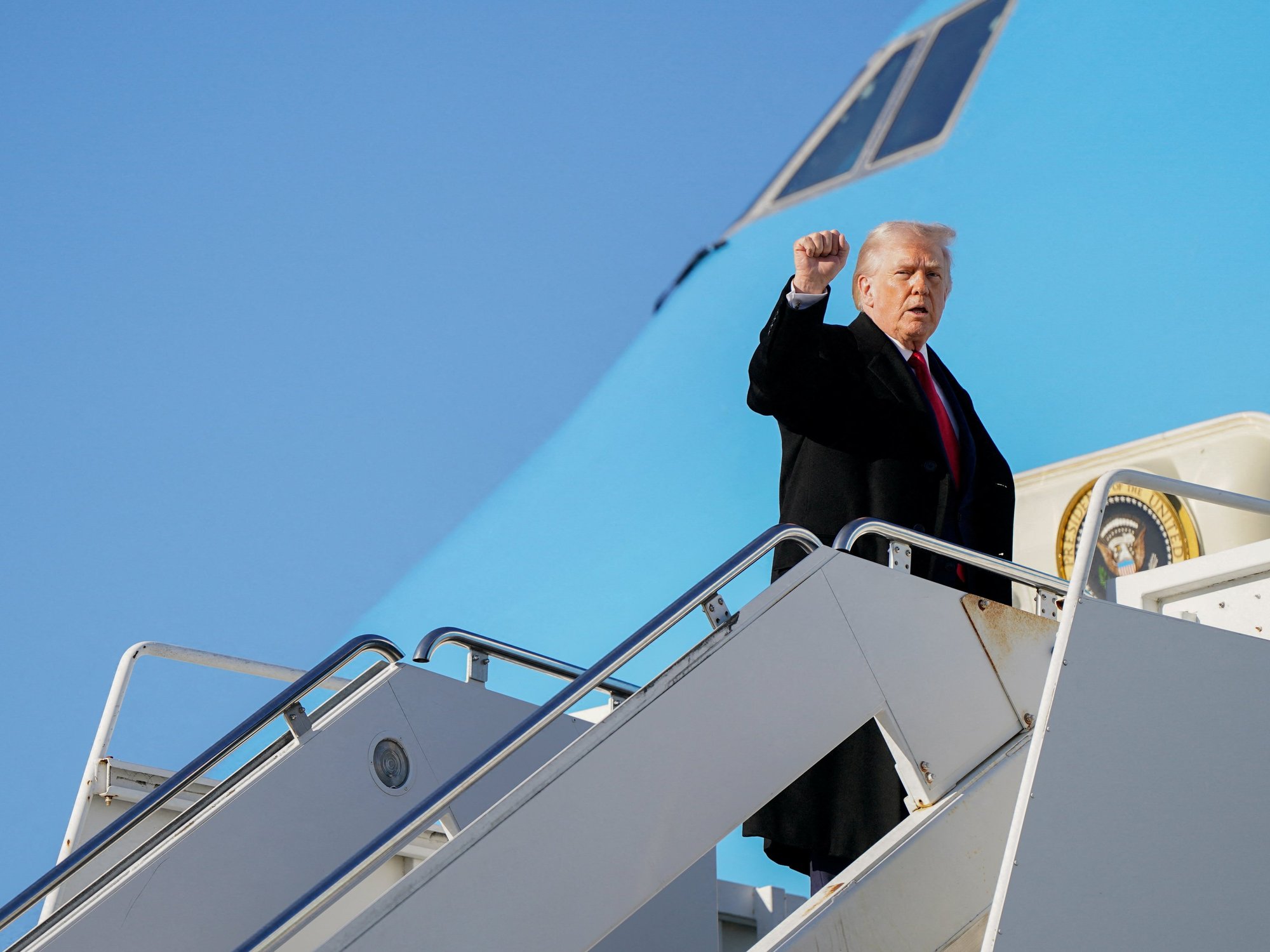Orban CAVES to bureaucratic EU as all bloc leaders pass major aid deal after warning 'patience wearing thin' with Hungary

Last December, Orban vetoed the EU’s plan to send an aid package to Ukraine
Don't Miss
Most Read
Hungarian Prime Minister Viktor Orban has conceded and voted in favour of granting Ukraine €50billion in aid, despite vetoing the package previously.
Charles Michel, the European Council president, has announced that a deal has been reached, with all 27 leaders of the bloc unanimously approving the package.
He posted on social media to say that the agreement “locks in steadfast, long-term, predictable funding for Ukraine”.
Orban, after abandoning his veto on the EU aid package to Ukrainem said: "After a long negotiation we accepted… I am glad that the reaction of markets and players of the economy is already positive on this agreement."
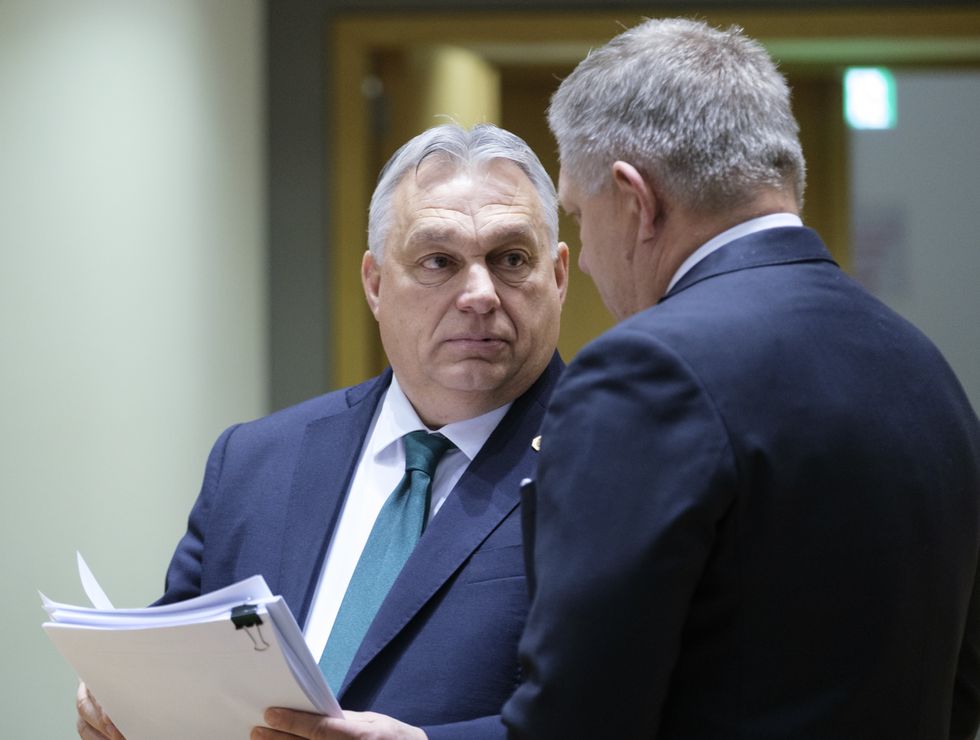
All 27 leaders of the bloc unanimously approved the package
|Getty
Last December, Orban vetoed the EU’s plan to send an aid package to Ukraine. Ahead of the summit today, where the matter was revisited, Orban warned that the bloc is “about to make a terrible mistake”.
However, the other EU leaders have come out victorious and overcome objections from Orban, with Michel declaring that the “EU is taking leadership and responsibility in support for Ukraine; we know what is at stake”.
One European diplomat said that Orban "gave some ground."
"He saw that people were growing irritated, that there was a line not to cross," they added.
Ahead of the vote, one diplomat told Politico that the 26 EU leaders’ “patience is wearing thin” with the Hungarian prime minister, who reportedly skipped the leaders’ dinner last night.
Speaking to reporters Wednesday evening, Estonian Prime Minister Kaja Kallas said: “We are having this extraordinary meeting because of Hungary and of course, the growing frustration is there. Why are we doing this … And what are the tools for us to use?”
The leaders were allegedly considering ways to get the vote through in case Orban vetoed it once more.
LATEST DEVELOPMENTS:
- Ex-minister warns European judges will 'continue to humiliate Britain' unless UK quits 'deeply flawed' ECHR
- EU draws up secret plans to 'sabotage Hungarian economy' should Orban block €50bn Ukraine aid package
- Ursula Von der Leyen threatens to silence Hungary as EU eyes nuclear option in major escalation of battle with Viktor Orban
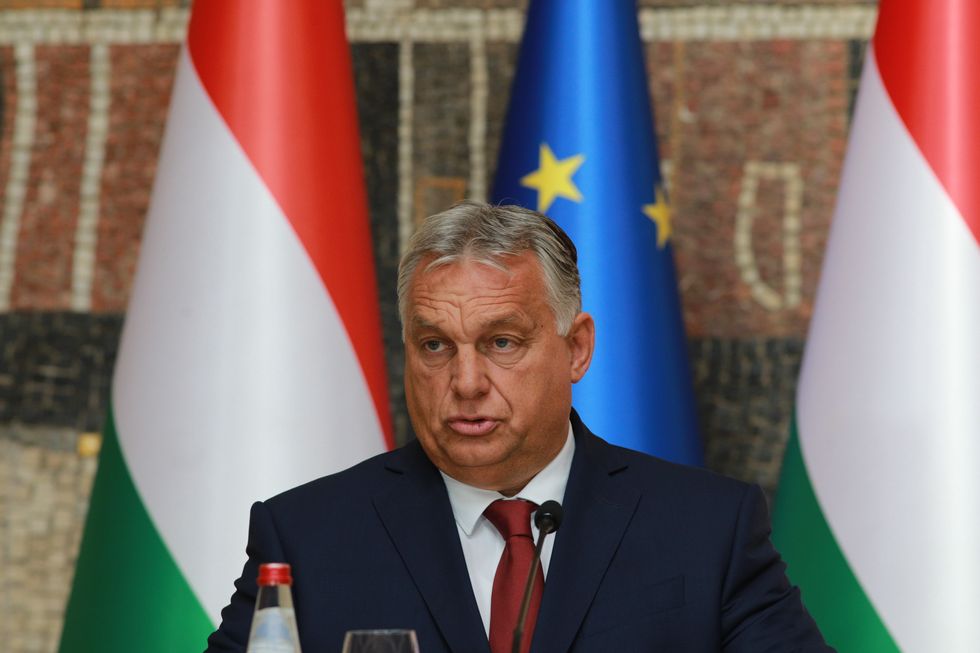
Last December, Orban vetoed the EU’s plan to send an aid package to Ukraine
|Getty
One option was to use Article 7, a clause in the EU treaty that allows it to suspend a member’s voting rights, but Kallas was not certain this would work.
“It’s not the first option because I think we have to think further to the future. OK, we can solve this one issue, but do we want Hungary be with us or be not with us?”
She added: “I feel around the table that people are very cautious in playing with that tool, but not ruling [it] essentially out.”
Meanwhile, EU law experts speculated if it was possible to get the deal through if Orban was physically out of the room when the vote took place.
Whilst it is not certain how the EU leaders managed to get all members on board, Michel’s announcement indicates Orban was successfully convinced.
Ukrainian President Volodymyr Zelenskyy reacted to the deal online, welcoming the “unanimous” decision. He said it will “strengthen long-term economic and financial stability, which is no less important than military assistance and sanctions pressure on Russia”.
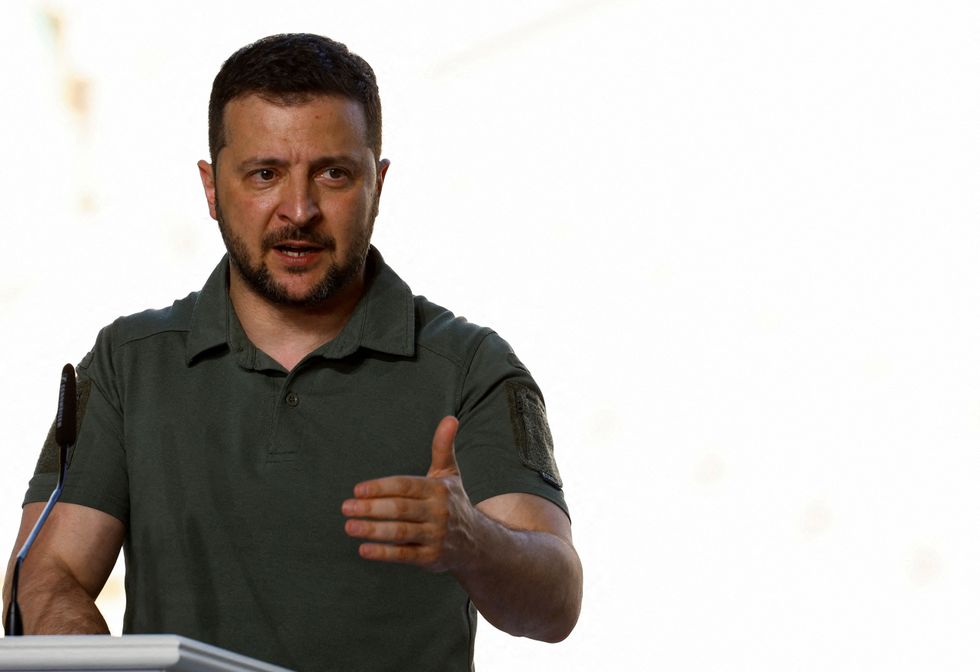
Ukrainian President Volodymyr Zelenskyy welcomed the “unanimous” decision
| REUTERSDmytro Kuleba, Ukraine’s foreign minister, has said that today’s agreement “is a step of historic proportions”.
“It demonstrates that any talk about alleged ‘fatigue’ or ‘waning support’ is simply false,” the minister said.
They added: “Europe has once again demonstrated its strength and ability to make major decisions independent of others. The EU is leading the way and setting an example for the rest of the world to follow.”
Last month, the European Commission handed £8.5billion to Hungary. The funding was initially frozen due to corruption and rule of law concerns with Hungary's government.
Ursula Von der Leyen was accused of striking a “dirty deal” with Budapest, with the European Assembly accusing the commission of giving in to blackmail from Orban.
The European Commission has said it released the funds because Hungary had shown sufficient effort to address concerns over the rule of law, with Von der Leyen saying it had no option but to approve the funds.
She said: “These are the rules we have all agreed to. We will follow them. This is what makes the rule of law stand out from arbitrary power.”


